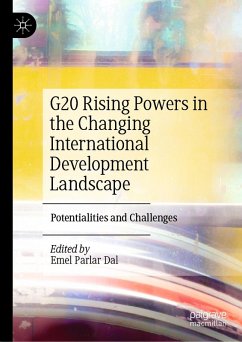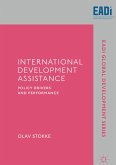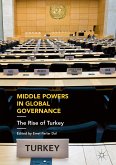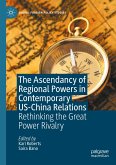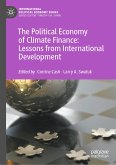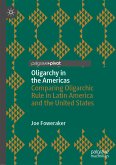-Stephan Klingebiel, Chair of the Research Programme "International and Transnational Cooperation" of the German Development Institute
"This edited work, connecting the role of the G20 with the changing development landscape, is valuable in stretching our traditional understanding of these dynamics. Originally elevated as a crisis committee in the context of the 2008 Global Financial Crisis, the G20 has struggled to widen its agenda. As well mobilized by Emel Parlar Dal, the collection demonstrates both the will and skill of select non-Western countries withinthe G20 to push the privileging of South-South development cooperation and an alternative policy consensus more generally. Although facing some structural limitations, the book is testimony to the expansion of agency in an increasingly multi-polar world that needs to be considered by both scholars and practitioners."
-Andrew F. Cooper, University Research Chair, Department of Political Science, and Professor, the Balsillie School of International Affairs, University of Waterloo
This book aims to explore G20 rising powers' increasing role in international development from a comprehensive perspective. The first part focuses on the historical development and current dynamics of (G20) rising powers' evolving actorness in international development to assess their main motivations. The second part examines the main contributions, trends and limits of G20 rising powers in South-South Cooperation. The third part analyses the linkage between G20 rising powers' active involvement in international development and their foreign policies.
Emel Parlar Dal is Professor at Marmara University's Department of International Relations. She is the Jean Monnet Chair on the EU and Rising Powers (2020-2023) and the director of JM Center of Excellence on the EU's sustainability in Global Governance (2022-2025).
Dieser Download kann aus rechtlichen Gründen nur mit Rechnungsadresse in A, B, BG, CY, CZ, D, DK, EW, E, FIN, F, GR, HR, H, IRL, I, LT, L, LR, M, NL, PL, P, R, S, SLO, SK ausgeliefert werden.

